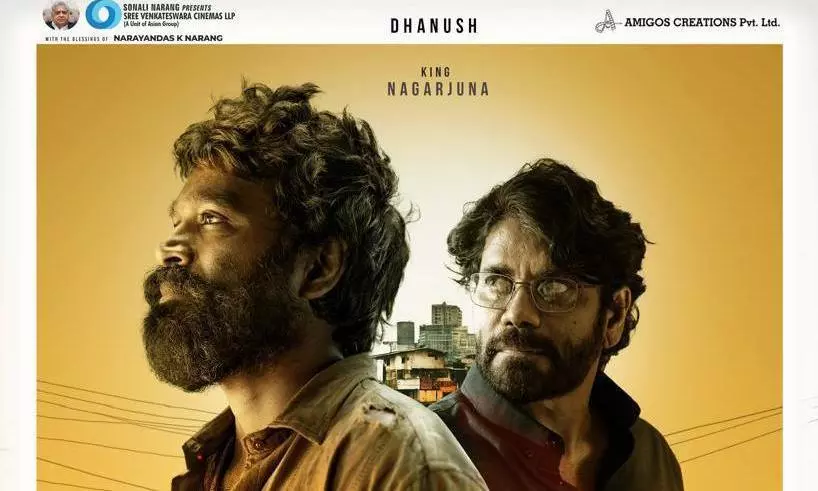Kuberaa Review: Contrived Plot, Incoherent Resolution Mars the Show
Director Sekhar Kammula, known for his sensitive and romantic dramas like Fidaa and Love Story, takes an unexpected detour into the world of white-collar crime.

Rating: 2.5/5 stars
Cast: Dhanush, Nagarjuna, Rashmika Mandanna, Jim Sarbh, Dilip Tahil, Sayaji Shinde
Director: Sekhar Kammula
After the success of Sir, Dhanush returns to Tollywood with Kuberaa, a film that holds promise on paper but falters in execution. While Dhanush delivers a compelling performance, fully immersing himself into the role of a beggar-turned-power player, even his commitment can't rescue a convoluted and emotionally distant narrative.
Director Sekhar Kammula, known for his sensitive and romantic dramas like Fidaa and Love Story, takes an unexpected detour into the world of white-collar crime. The story explores an intriguing premise: transforming beggars into benami account holders to launder vast sums of illicit money. While ambitious, the film struggles to ground this concept believably and engagingly.
Dhanush is undoubtedly the film's strongest asset. Sporting a leaner frame, an unkempt beard, and a rugged demeanor, he brings authenticity to his role as a beggar-turned-crusader. Nagarjuna, too, impresses in a special appearance as a morally conflicted officer navigating a grey zone between right and wrong. His portrayal of a jailed CBI officer forced into facilitating a massive fund transfer adds gravitas to the proceedings.
The film opens on a promising note, with the discovery of gas reserves in the Bay of Bengal. A powerful corporate honcho learns of the find and, in collusion with a corrupt politician, orchestrates the destruction of the rig to serve their mutual interests. Enter Jim Sarbh’s character—a supposedly menacing antagonist—who ropes in Nagarjuna’s character to funnel ₹1 lakh crore through fake accounts held by beggars.
Despite the strong setup, the narrative quickly becomes disjointed. Jim Sarbh feels miscast, lacking the menace required for such a pivotal role. Rashmika Mandanna plays a semi-tragic character who forms a bond with Dhanush after a personal heartbreak, but her role feels underwritten.
Kammula appears to aim for a larger commentary—that everyone is a beggar in one form or another, seeking something in life. He also tries to highlight systemic exploitation by the rich and powerful. But these themes never quite gel, and the film ends up meandering, particularly in its climax. Dhanush’s demand for ₹10,000 crore for the welfare of beggars across India seems outlandish and symbolic, and the sequence where he forces Jim Sarbh to beg for a day stretches believability.
Technically, the film is competent, and the performances by Dhanush and Nagarjuna are commendable. But Kuberaa suffers from a lack of tonal consistency and narrative coherence. The plot, while ambitious, is contrived and fails to emotionally connect with the audience, barring some episodes showcasing the pitiable world of beggars, particularly one scene where a deceased beggar is left untouched even by GHMC workers, and other beggars burn him in the dump yard.

